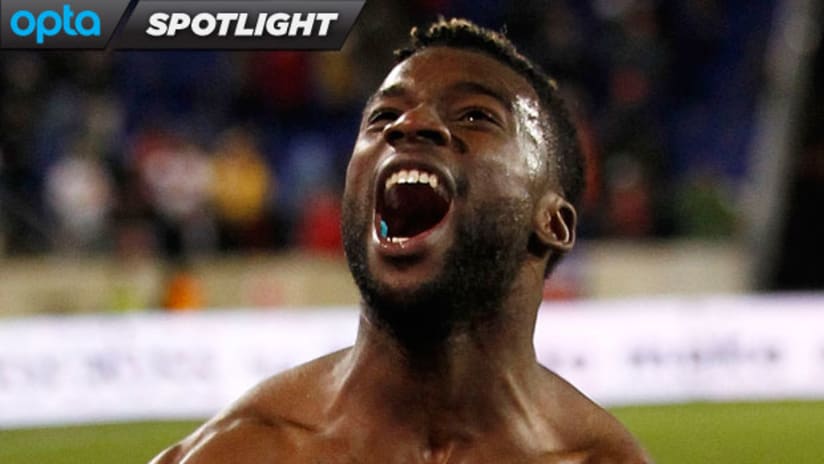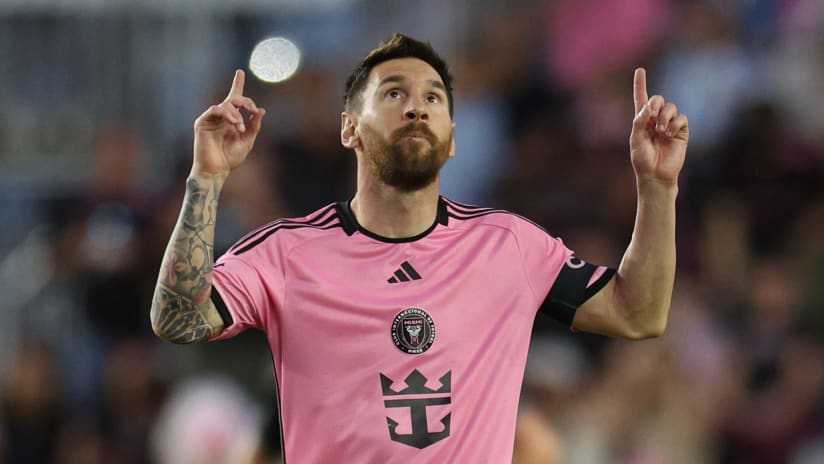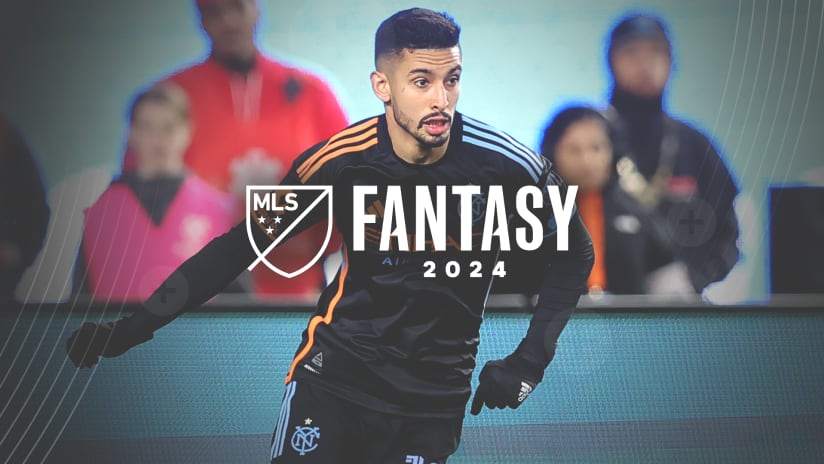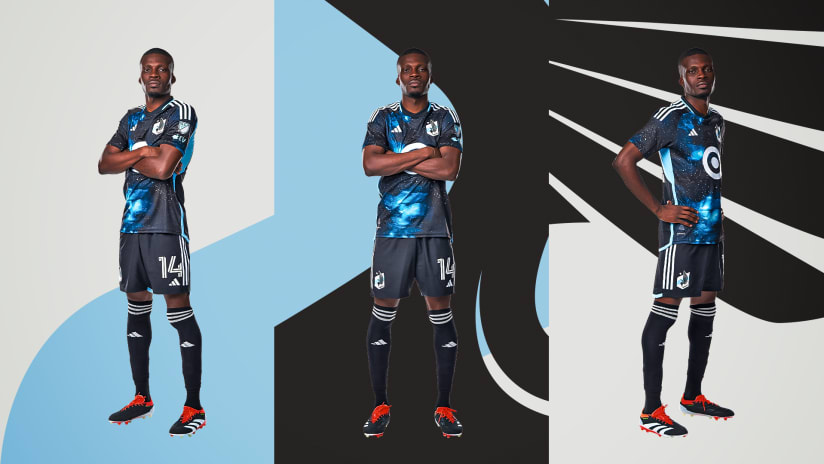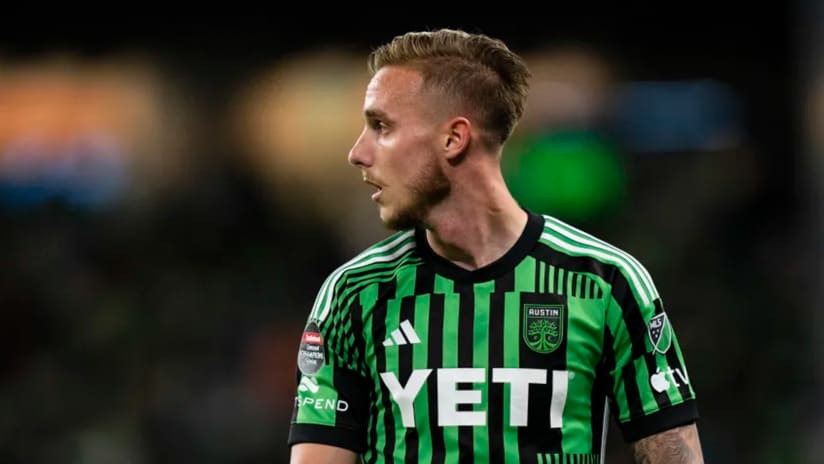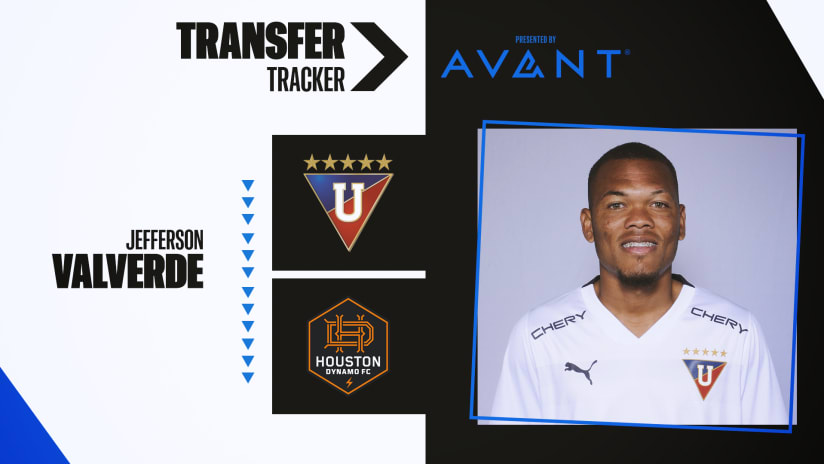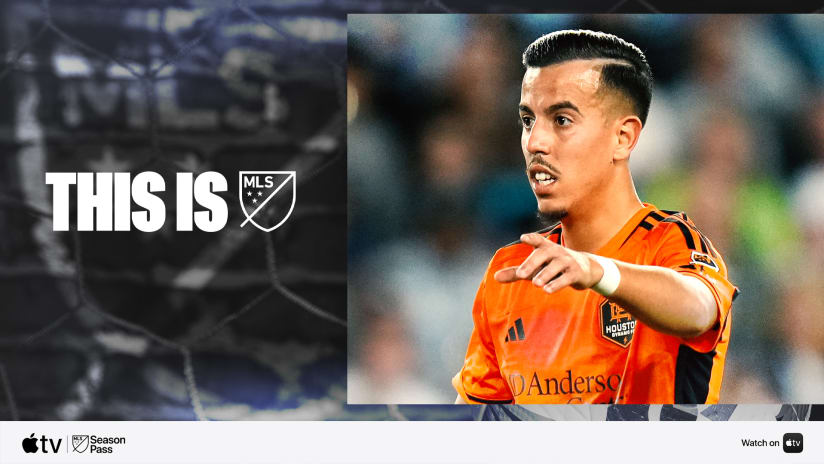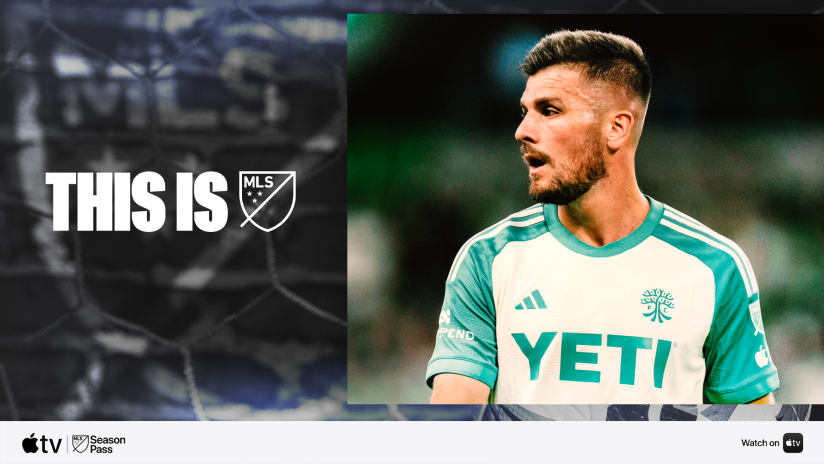MLSsoccer.com continues to take a look back at the 2012 season that was for all 19 clubs in Major League Soccer, starting with Toronto FC and ending with the Supporters' Shield-winning San Jose Earthquakes. You can find the schedule and comprehensive reviews for each team here.
2012 record: 17-10-7 (58 points); 53 GF / 43 GA (+10 GD)

2012 in Review: D.C. United
Q&A with D.C. United's Ben Olsen
Armchair Analyst: D.C. take "professional" step forward
WATCH: 2012 D.C. United goals
2012 D.C. United Average Position
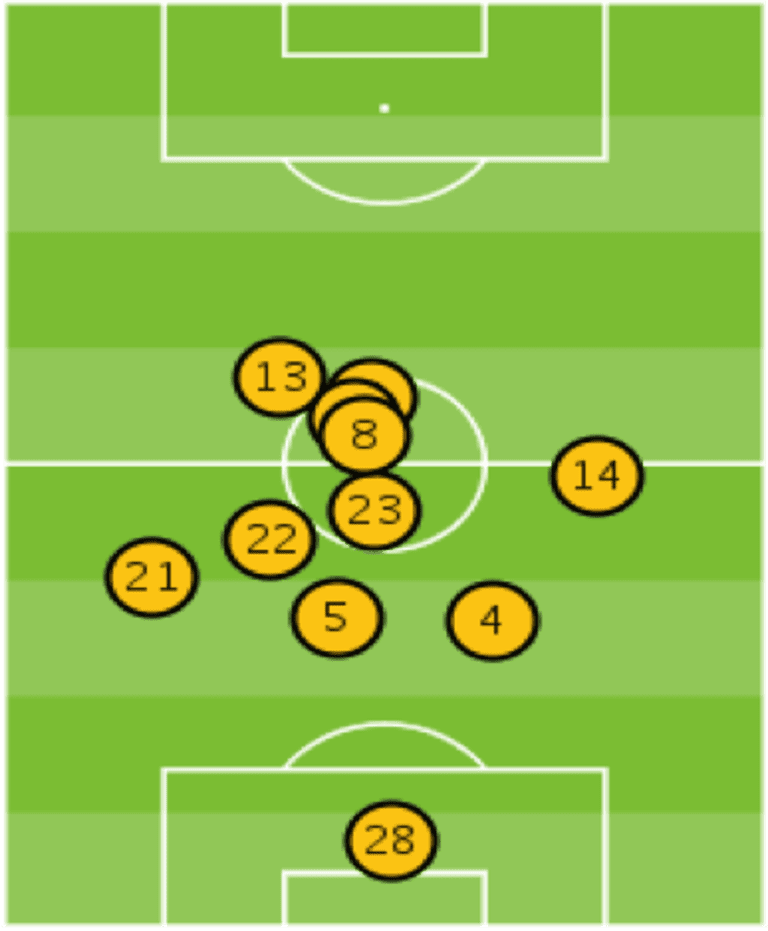
The cluster of attacking players in the middle of the field, as well as the fact that Andy Najar split time as a fullback and wide midfielder, makes this one hard to decipher.
We know Chris Pontius (13) favors the left channel – no surprise there. Perry Kitchen (23) shields the midfield essentially on his own after taking another significant step forward as a second-year player (just watch his first touch in traffic and accuracy spraying the ball wide, nothing is wasted).
Apart from that, though, it's clear United had to do some shuffling from an attacking sense (Dwayne De Rosario's season-ending injury ring a bell?). And yet D.C. were still 90 minutes from MLS Cup.
2012 D.C. United Passing Matrix(Download HERE)
D.C. were 13th in MLS in successful passes (10,699), so clearly this was not one of the league's leading possession sides. The passing matrix bears that out as well, with just two players – Brandon McDonald (1,083) and Kitchen (1,128) – recording more than 1,000 successful passes.
Thing is, from a goalscoring sense, it didn't really matter that D.C. were in the lower half in possession and passing. Their 53 goals were fourth in MLS, and their shooting volume came out in the top five in most categories. Clearly, passing isn't the end all, be all when it comes to creating chances.
Compared to 2011, D.C. generally possessed the ball slightly deeper, logging fewer attempts in the middle and final thirds. The difference wasn't huge, which suggests De Rosario's absence during the latter stage of the regular season had an impact on the side's ability to maintain possession high up the field.
Based on the relationships outlined by the matrix, DeRo was the midfield link between Kitchen and Pontius, tying for the team lead in completed passes (72) to the club's leading scorer.
1) D.C. are still looking for a center forward, but they were still lights out in big-chance situations
Will Luís Fabiano be the next Brazilian to lead D.C.'s line? That seems unlikely, but who knows what to believe with rumors flying and agents posturing for a payday? It certainly won't be Maicon Santos, who is headed to Chicago, and Lionard Pajoy is probably better suited to a reserve role.
Still, even without a productive target or poacher for De Rosario, Pontius and DeLeon to play off of, United were one of the league's best at finishing their big chances, those that should be reasonably expected to result in a goal. Only New York (57.8 percent conversion) were better than D.C. (55.8 percent), and the previously mentioned trio were all above that benchmark.
DeLeon only had two such opportunities, but he finished both. Pontius found the net with eight of his 12 chances, or every single one he put on frame. DeRo was slightly worse, going four of seven, but just imagine how productive United could have been with a productive spearhead around to complement their already potent trio of supporting players.
2) D.C.'s run without DeRo may have been the most impressive accomplishment in MLS this season
He was the MVP a year ago and the unquestioned leader of this team – both on the field and off – and yet United didn't seem to skip a beat from a results perspective when De Rosario went down with a knee injury in early September. Heck, they got better, reeling off a seven-game unbeaten streak (5-0-2) to finish the season then rolling to the Conference Championship.
They did all that without their most creative player (44 chances created, best on the team) and leading assist man (12, five more than Branko Boskovic).
That certainly bodes well for 2013. DeRo will be a year older, sure, but he'll also come back into a side that knows it can win with and without its talisman. Instead of being the go-to man when times get tough, the 34-year-old will be able to lean more on his teammates, and in return, opponents will find it hard to key on any one player to slow down the attack.
3) Brandon McDonald took a huge step forward in 2012
Don't take that statement the wrong way. McDonald has been an above-average MLS defender for a couple years now. There's no doubt he became elite in 2012, though.
Not only was McDonald the main conduit out of the back for D.C., but he was their most reliable ball winner as well, leading the club in combined clearances, blocks and interceptions by 120 and finishing ninth in the league in that category.
Take a look at the list of players that finished ahead of him: Carlos Valdés, Austin Berry, Drew Moor, Jay DeMerit, Matt Besler, A.J. Soares, Chad Marshall and Aurélien Collin. In other words, the rest of the league's elite central defenders. And only Moor, Besler, Valdés and Collin completed more passes than McDonald.
This guy is for real, and it's a real shame a calf injury only allowed him to play 56 minutes in the Eastern Conference finals.
Random nugget: Opponents had to resort to more desperate measures to stop D.C. in 2012 than in 2011. The proof? They racked up 53 yellows compared to 38 a year ago.

